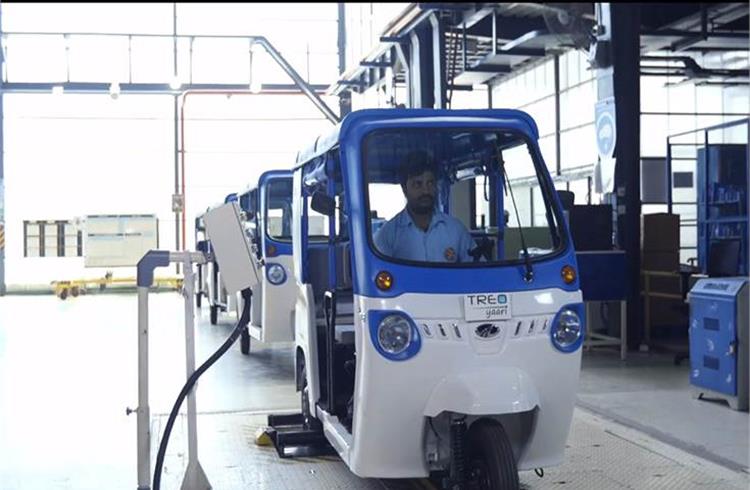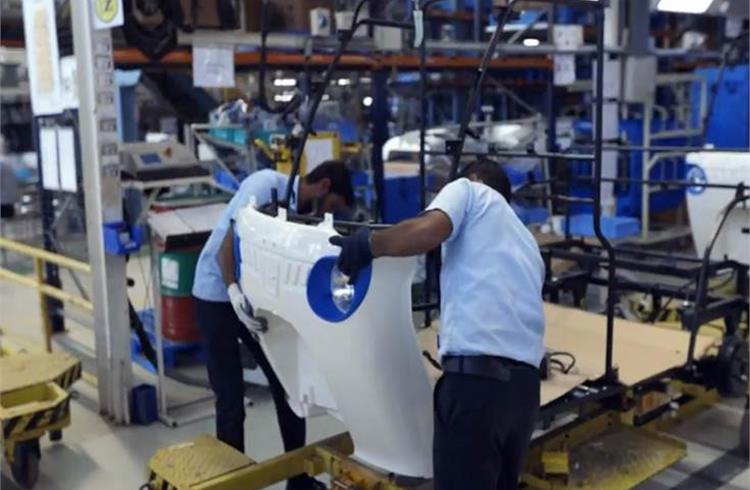Mahindra Electric’s Bangalore plant gets TUV Nord’s Zero Waste to Landfill certification
M&M says this certification reaffirms its commitment to be a carbon neutral company by the year 2040 as per the Paris Agreement.
Mahindra & Mahindra, which has for long been committed towards achieving sustainable manufacturing practices, be it by becoming the first automaker to bet on electric mobility in India, or adopting green manufacturing practices, has received another green certification.
The company’s electric mobility arm Mahindra Electric has recently received ‘Zero Waste to Landfill’ certificate from TUV Nord India for its Bommasandra plant in Bangalore. Mahindra says this certification reaffirms its commitment to be a carbon neutral company by the year 2040 as per the Paris Agreement.
Mahindra Electric's Bangalore facility at present manufactures the Treo and Treo Yaari three-wheelers, e2oplus (for export market) passenger car and the powertrain for the eVerito, eSupro and eKUV100.
TUV Nord was established as an industrial self-control organisation for providing independent, neutral, third party services. The company is one of the world’s largest inspection, certification and testing organisations, and is also one of the first certification bodies to start operations in India.
Mahindra Electric has been focussed on reducing carbon footprint, be it on the road and in its manufacturing practices. Water used in various activities at the Bangalore plant is recycled and reused. The energy generated during various tests is also fed back into the system. What’s more, every car that comes out of its manufacturing unit gets its first charge from solar energy. This is done using solar charging plant located within the premises.
<>
It may be recollected, that in November 2019, Mahindra Electric was the first Indian automaker – and second worldwide – to receive approval from Science Based Targets. The Science Based Targets initiative (SBTi) champions science-based target setting as a powerful way of boosting companies’ competitive advantage in the transition to the low-carbon economy. It is a collaboration between CDP, the United Nations Global Compact (UNGC), World Resources Institute (WRI), and the World Wide Fund for Nature (WWF) and one of the We Mean Business Coalition commitments.
Also read: Mahindra Electric targets 2023 for spurt in personal EV sales
Mahindra's Igatpuri plant becomes India's first carbon-neutral facility
Mahindra Electric reveals new brand identity, aims to become a global supplier for EV solutions
RELATED ARTICLES
Bosch hydrogen engine tech-powered truck to be on Indian roads this year
The global supplier of technology and services is betting big on both electromobility and hydrogen. While announcing the...
IIT Bombay inaugurates Arun Firodia Research Floor
IIT Bombay, one of India’s top technical and research institutions, honours Kinetic Group chairman Dr Arun Firodia, one ...
Maruti Suzuki expands capacity at Manesar plant by additional 100,000 units
New assembly line at Plant A expands total manufacturing capacity at the Manesar plants to 900,000 units per annum. Alon...





 11 Jun 2020
11 Jun 2020
 26489 Views
26489 Views








 Autocar Pro News Desk
Autocar Pro News Desk




